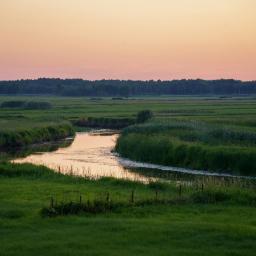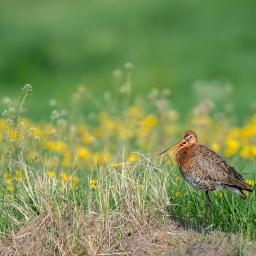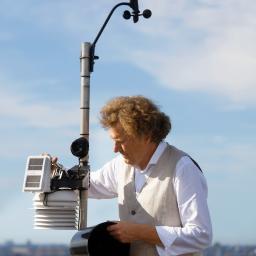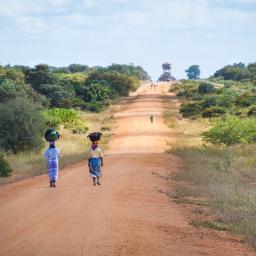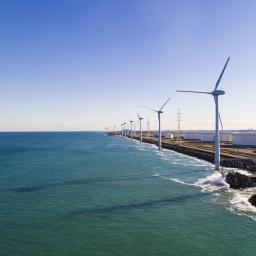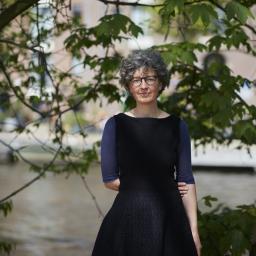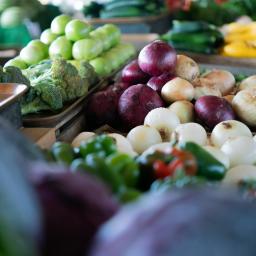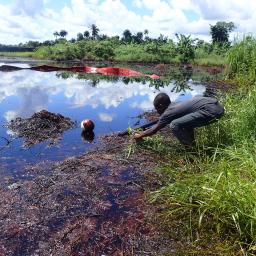Commonland developed a way to regenerate nature, community and employment in large areas, making landscapes more resilient to climate change and sequestering tonnes of carbon in the process. Founder Willem Ferwerda: 'True climate adaptation is about biodiversity.”'
By Rianne Lindhout
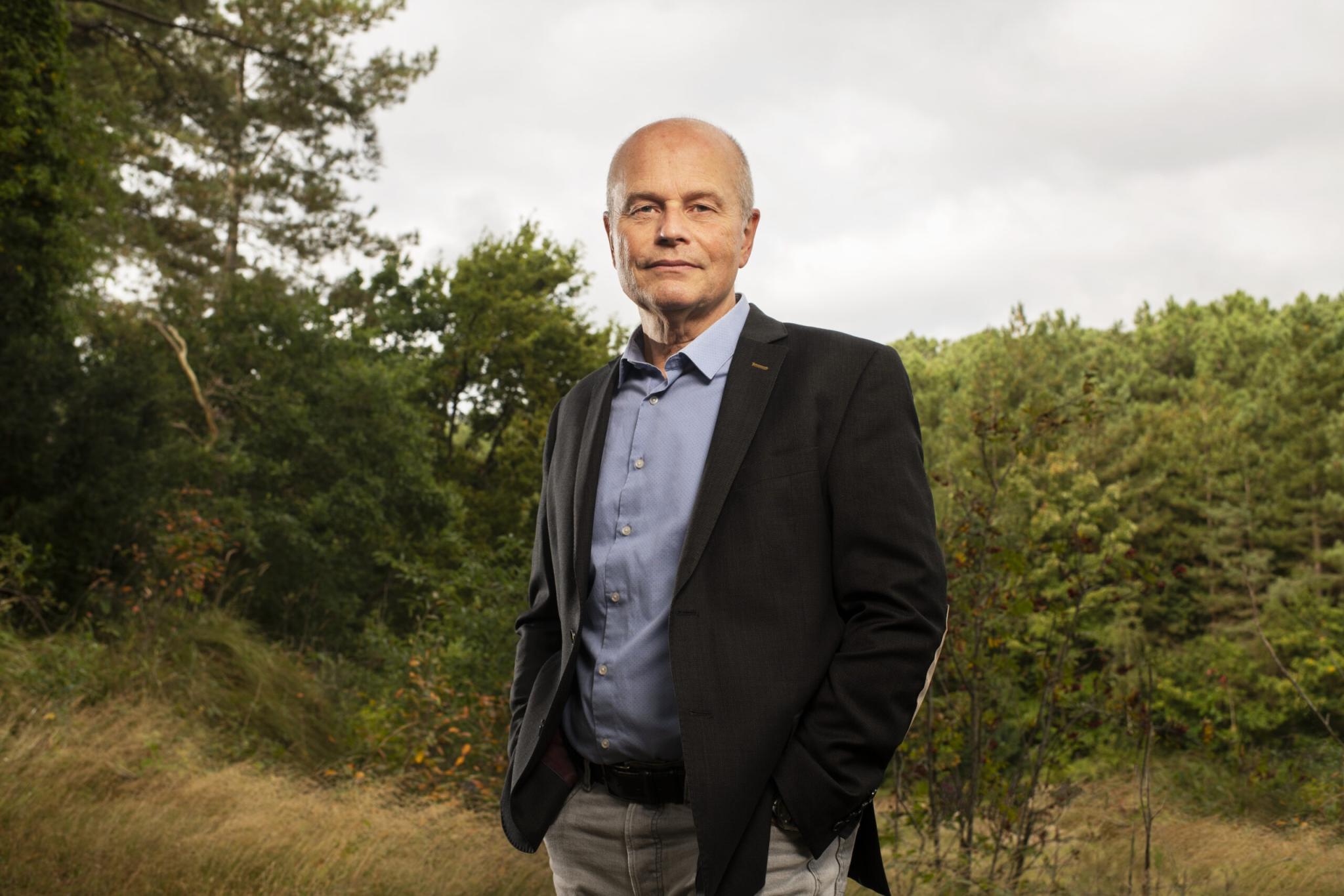 What a wonderful accomplishment: regenerating vast swathes of 'ruined' land.
What a wonderful accomplishment: regenerating vast swathes of 'ruined' land.
'Absolutely. Take the Spanish area of Altiplano Estepario, for instance, which is about a quarter of the size of the Netherlands. Almost half of this area consists of arable land degraded by erosion, decimating local villages. People there have no purpose and no hope; their jobs and communities have disappeared.'
'We are trying to bring all that back with a complete form of landscape restoration, together with local organisations, farmers and conservationists. Together, we create a long-term landscape vision with an action plan, aiming to create landscape zones where people can live and work, sustainable agriculture and interconnected protected nature areas.'
According to the website, Commonland managed to reduce an impressive 78,000 tonnes of carbon in 2022.
'Regenerative agriculture, which combines food production with nature conservation and restoration, sequesters tremendous amounts of carbon dioxide. The ground is covered, never bare, and farmers plough less deeply and less often, preserving roots and soil life.'
'We encourage intercropping, preferably with perennial crops such as fruit trees - instead of annual monocultures. We also help build ecological corridors that sequester carbon, and in Zambia, for example, we supplied small, efficient cookstoves that use much less wood. All these measures make up part of a landscape restoration plan funded by companies looking to offset their carbon emissions.'
Together, we create a long-term landscape vision with an action plan.'
Are regenerated landscapes more resilient to climate change?
'That’s one of the reasons we do what we do. The climate adaptation agenda now consists mainly of technology and infrastructure: Higher dikes, trees and green spaces to provide shade and cooling, genetic engineering to make drought-resistant crops. Biodiversity, however, is the key to long-term adaptation. We need more species and nexuses, changing the properties of the soil to make it fertile and capable of retaining moisture. The same rule applies to organisations, by the way: Diversity breeds resilience.'
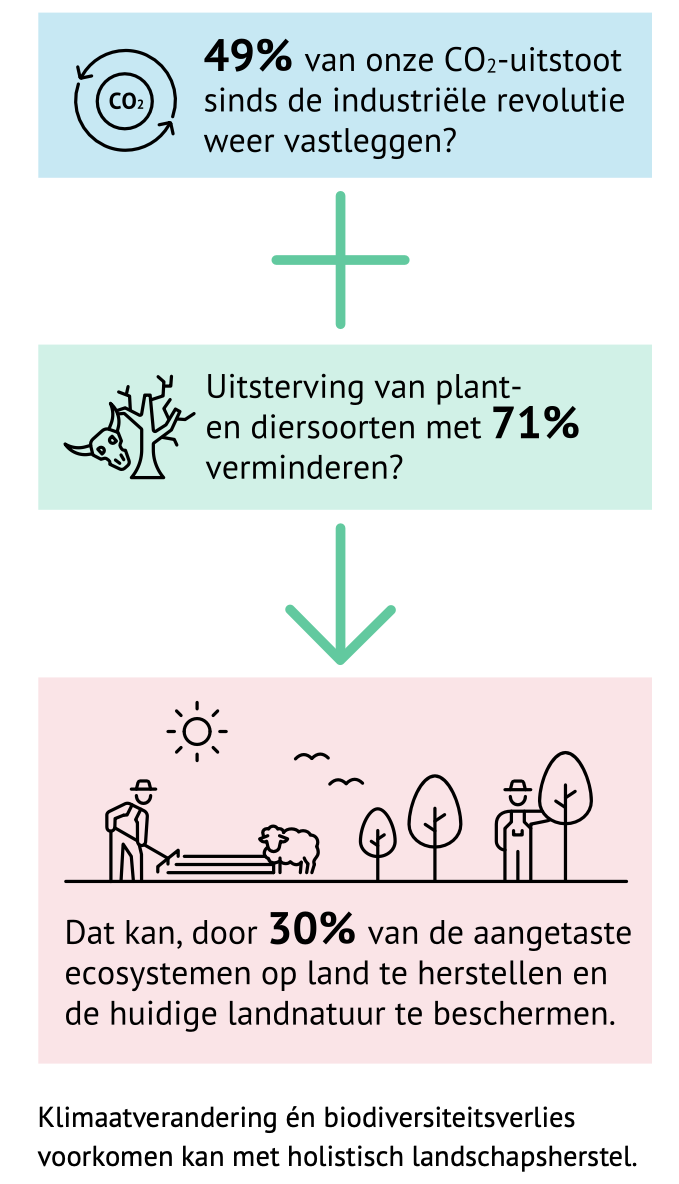
Do new landscapes like these affect the climate and extreme weather events?
'Probably. In Costa Rica, clouds dwindled after following the deforestation of lowland rainforest in favour of banana plantations, as a result of which the higher cloud forest dried up. In a few years, we will be able to prove whether the reverse holds true, too.'
'The landscape programmes we support are not that far along yet, but the Egyptian community of Sekem began restoring 70 hectares of desert land in 1977. By 2009, they had expanded to 3000 hectares, all of which is now thriving. 30,000 people live there, producing and processing organic tea, cotton and more.'
How do you embark on projects of such impressive size?
'First, we team up with locals to showcase the potential of the landscape in order to foster hope and confidence. You also need long-term financiers, because landscape regeneration takes at least 20 years.'
'If you want to build a 40-kilometre ecological corridor in Spain, for example, you first have to talk to all the farmers whose lands will be involved. That easily takes 12 months, so you’re a year in before you even start building the corridor.'
'You also need to preserve every drop of water in the landscape by creating gullies and clever planting. However, there’s no cookie-cutter solution: you need insights from local farmers and university experts who know which species are traditionally found there.'
It is inevitable that ecology will become the defining factor of our economy.'
Are you itching to get to work in the Netherlands?
'In 2016, the Dutch Ministry of Agriculture invited us to start a project in 125,000 hectares of peatland to the west of Amsterdam, The area is vulnerable due to dewatering, subsidence, loss of biodiversity and a great deal of competition for space.'
'In 2019, we founded Wij.Land, an independent organisation that works with farmers to develop knowledge, help build a resilient landscape and explore new business models for dairy farmers that are in balance with nature.'
In 2022, the UN announced that approximately 40% of all land worldwide was degraded. That includes the entire Mediterranean, to give just one example. You still have a lot of work on your hands.
'We will have to pay to conserve and restore biodiversity. The report of the UN IPCC and IPBES panels on the links between climate and biodiversity highlights the importance of protected areas. As things are going now, we’re not headed in the right direction. Congo is home to what we call 'paper parks', where a handful of people are tasked with protecting an area the size of the province of Utrecht.'
'They have three jeeps and an uncertain supply of petrol. No wonder miners and poachers have free rein. I hope our method will become the standard for a landscape restoration industry, as Intel inside became the standard in the computer industry. We will not live to see the day, but it is inevitable that ecology will become the defining factor of our economy by 2200 or earlier. We are now building the knowledge we need for that future.'
Willem Ferwerda is a tropical ecologist who founded Commonland in 2013. In over 20 countries, this organisation supports local parties that restore degraded landscapes based on Ferwerda’s 4 returns framework. He is also an Executive Fellow of Business and Ecosystems at the Rotterdam School of Management.
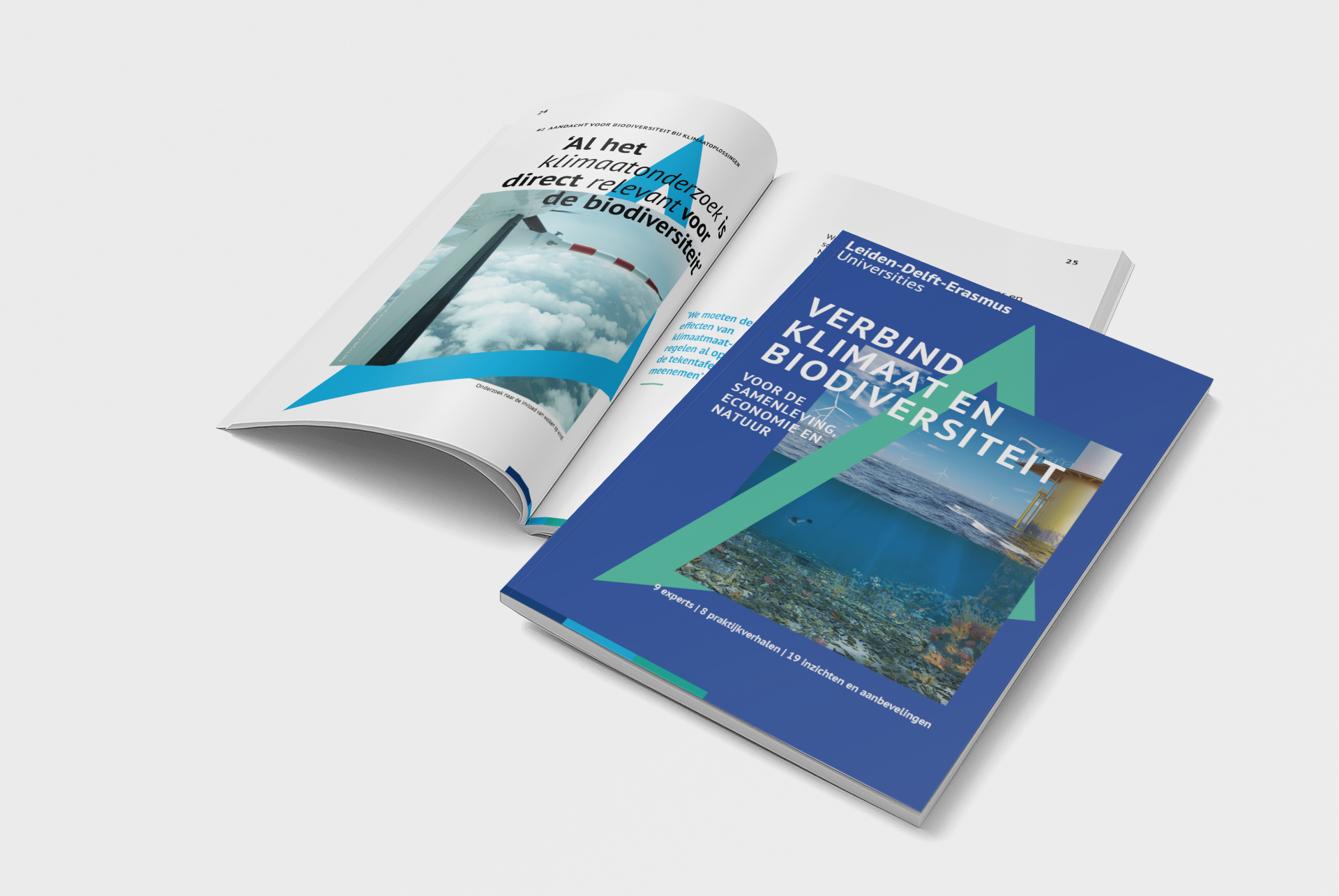 New white paper 'Connect Climate and Biodiversity for Society, Economy and Nature'
New white paper 'Connect Climate and Biodiversity for Society, Economy and Nature'
This article is from the new white paper 'Connect Climate and Biodiversity for society, economy and nature' of Leiden-Delft-Erasmus Universities. In this paper, scientists, foresters, bankers, farmers, and municipal officials advocate protection of eco-systems as a strategy against global warming.
Download the white paper (written in Dutch, except the English summary and list of recommendations) or order a copy via Katja Hoiting: k.hoiting@tudelft.nl

